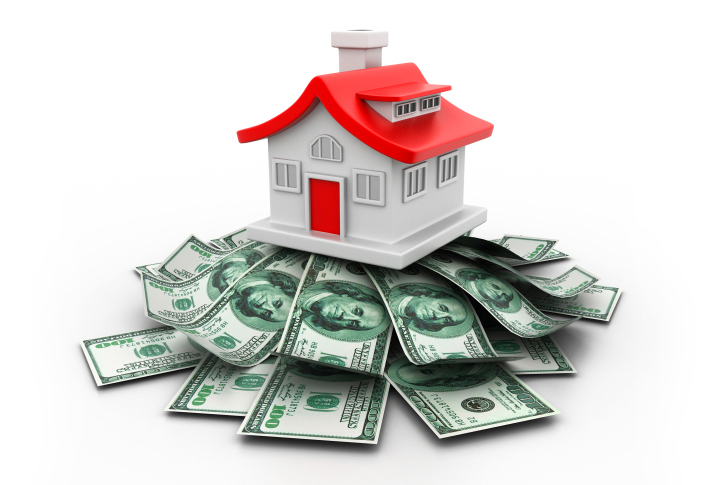 When making the decision to purchase a home, there can be an array of questions to ask regarding location, size, style and additional features that will complicate things. If one of the considerations among these is whether to buy new or old, though, you may want to be aware of new home warranties. While buying new can seem like a risk, this type of warranty may help make at least one decision easy when it comes to your home purchase.
When making the decision to purchase a home, there can be an array of questions to ask regarding location, size, style and additional features that will complicate things. If one of the considerations among these is whether to buy new or old, though, you may want to be aware of new home warranties. While buying new can seem like a risk, this type of warranty may help make at least one decision easy when it comes to your home purchase.
It’s A New Home Benefit That’s Often Guaranteed
Currently, there are a number of places in North America where a third-party warranty or a builder’s warranty are now required so the quality of a builder’s work can be assured. While some builder’s may offer a warranty when you purchase a home through them, a third-party warranty that is guaranteed in many regions will mean that you don’t have to worry about paying out of your own pocket when a problem occurs with your new home.
The Coverage Included In New Home Warranty
Generally, a new home warranty will include insurance on your deposit and a guarantee against flaws with the work, the materials or the structure that may appear down the road. While this type of warranty will commonly cover standard issues that can occur with a new home, there’s often the option for more extensive warranty coverage that will safeguard you in the event that issues beyond the basic appear.
What You Can Expect From Your Builder
If you’ve decided on a new home, you will want to research your builder and choose one that is reliable, up-front and will follow-up on any issues you may have with your new home. Once your house is close to completion, you’ll have the opportunity to do a home inspection with the builder to take notes of any issues with your house – like a sticky drawer or a chipped cabinet – that may be present. The builder should be able to offer a completion date for these issues, and also provide you with information you need to keep your new house in tip-top shape.
There are no assurances when it comes to buying a house, but new home warranties are a good guarantee that you’ll be covered in the event that a problem occurs. If you’re interested in learning more about making a new home purchase or this type of warranty, you will want to contact your local real estate professional for more information.
 It might seem like selling a home and moving to a new place is enough pressure on its own, but buyer’s remorse is a well-known phrase for a reason. If you’re currently considering a home and are concerned about taking the plunge into purchasing, here are three strategies you will want to utilize before making a final decision.
It might seem like selling a home and moving to a new place is enough pressure on its own, but buyer’s remorse is a well-known phrase for a reason. If you’re currently considering a home and are concerned about taking the plunge into purchasing, here are three strategies you will want to utilize before making a final decision. With mortgage bubbles and real estate issues still in recent memory, one might feel that their best option is to buy their next home using cash instead of borrowing the necessary funds. In today’s article we’ll explore the pros and cons of paying cash for that next house or condo.
With mortgage bubbles and real estate issues still in recent memory, one might feel that their best option is to buy their next home using cash instead of borrowing the necessary funds. In today’s article we’ll explore the pros and cons of paying cash for that next house or condo. One of the most stressful parts of selling a home is the dreaded home inspection. Getting the most value from a home inspection is crucial, especially since any missed item can cause a significant amount of trouble a few years or decades down the road. With that in mind, let’s take a look at a few tips on how one can get the most value from a home inspection.
One of the most stressful parts of selling a home is the dreaded home inspection. Getting the most value from a home inspection is crucial, especially since any missed item can cause a significant amount of trouble a few years or decades down the road. With that in mind, let’s take a look at a few tips on how one can get the most value from a home inspection. You’ve found it: A large new home for your family. It’s in the area of the city that you love, with the perfect architectural style and lots of room for entertaining guests. It would have been perfect for you, but there’s only one problem – you’re not quite ready to pay the price the seller is asking for. You’ll have to put in an offer below the seller’s asking price – a risky move.
You’ve found it: A large new home for your family. It’s in the area of the city that you love, with the perfect architectural style and lots of room for entertaining guests. It would have been perfect for you, but there’s only one problem – you’re not quite ready to pay the price the seller is asking for. You’ll have to put in an offer below the seller’s asking price – a risky move. If you’re entering the real estate investment market for the first time, you’re embarking on a great adventure – and with a solid plan, you can turn a tidy profit on your investment.
If you’re entering the real estate investment market for the first time, you’re embarking on a great adventure – and with a solid plan, you can turn a tidy profit on your investment.